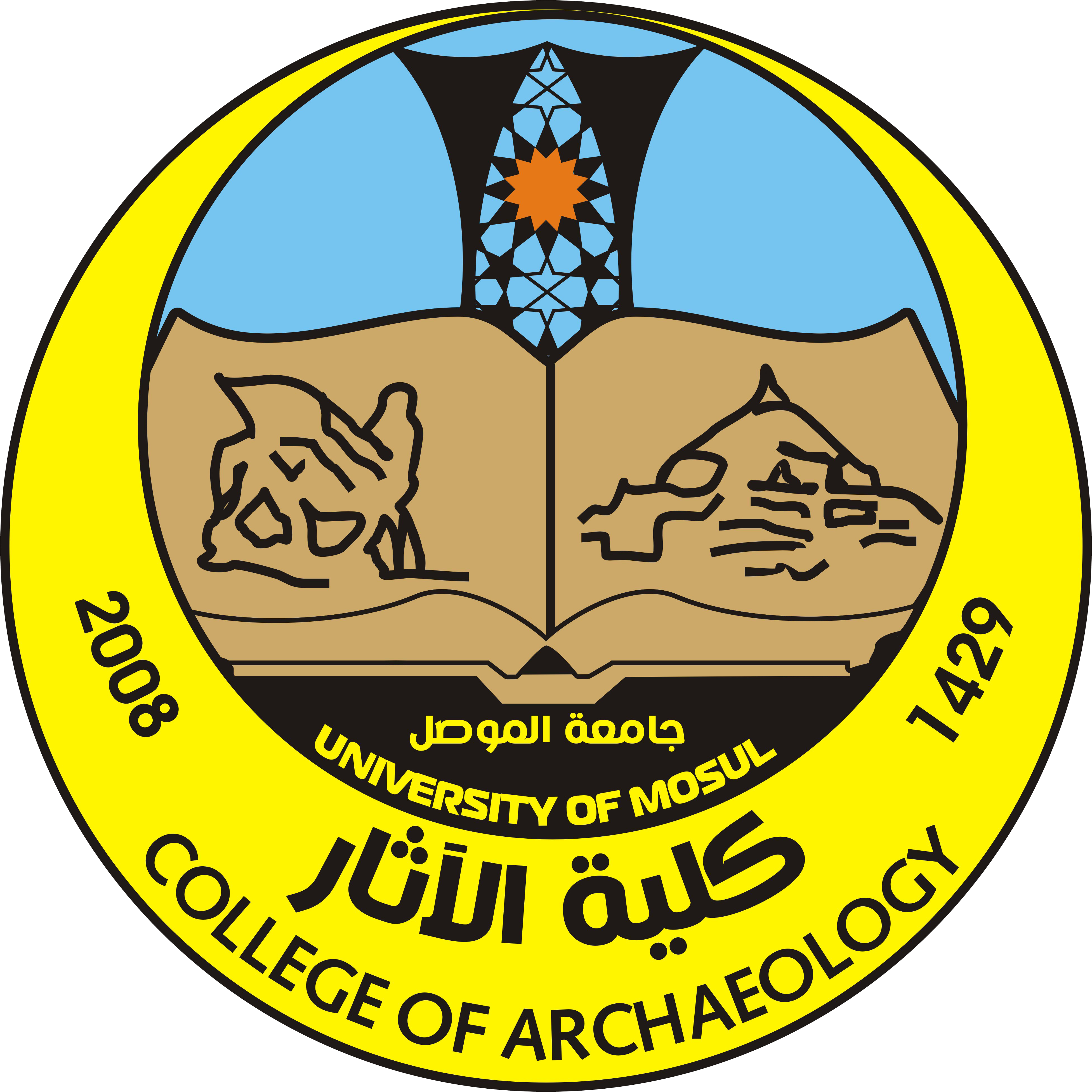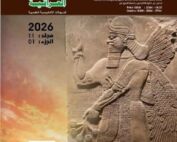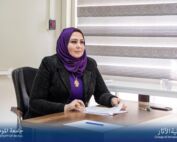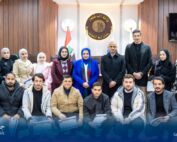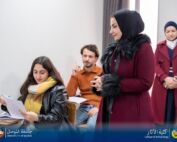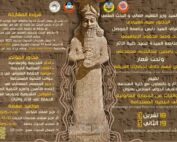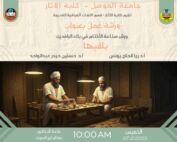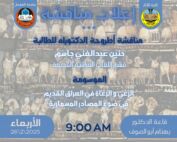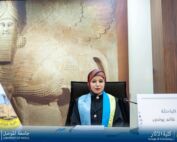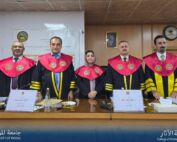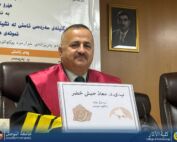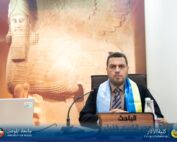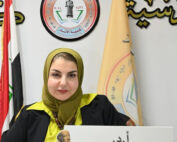2 May، 2023
A master’s thesis in the college of Archeology discussing (head and face diseases, their diagnosis and treatment in the light of cuneiform sources)

On Tuesday, May 2 / 2023, The Department of Ancient Iraqi Languages at the College of Archeology at the University of Mosul discussed a master’s thesis entitled (Diseases of the head and face, their diagnosis and treatment in the light of cuneiform sources) in the hall of Dr. Behnam Abu Al-Souf in the college. Part of it was attended by: Prof. Dr. Mounir Salem Taha / Assistant President of the University for Scientific Affairs and Assistant Professor Dr. Yasmine Abdul Kareem Muhammad Ali / Dean of the College of Archeology and a number of faculty, staff and students of the college.
The thesis presented by the student (Suhad Saadallah Muhammad) dealt with diseases of the head and face, their diagnosis and treatment in the light of cuneiform sources. The thesis dealt with the oldest known authentic human civilizations in the world, which is Iraq, as the authenticity of its civilization was not limited to a specific aspect of civilization, but rather included most of its aspects if not all of them, and medicine was among those aspects. And knowledge, including medicine, is due to other civilizations, including the Greek, and there is no doubt that the cuneiform texts, some of which date back to the third millennium BC, and that the ancient Iraqis had a prominent and active role and a great contribution in establishing the solid foundations on which medicine was founded in the ancient Iraqi laws and from The most famous of them is the Hammurabi Code, which is one of the most complete laws, as one of its resources is to regulate the work of the doctor. In addition, medicines and medical therapeutic methods were not the only way to recover from diseases, despite their extreme importance in treating various diseases. Rather, there were other factors that alleviate the pain and severity of the disease. In the event of infection, and based on the important factors that repel diseases and contribute to the treatment of the disease,
The thesis aims to study diseases due to the availability of cuneiform texts related to medicine, such as falling teeth, tooth decay, weak teeth, toothache, as well as munu disease, nasal diseases including nasal congestion and busanu, and eye diseases including cataracts, eye bleeding, eye ulcers, developing eye flesh, night blindness and farsightedness Eye dryness, swelling of the eye, and tearing, as well as clouding of the eye, temporal pain, and temporal pain.
The discussion/ viva committee was chaired by Assistant Professor Dr. Yasser Jaber Khalil, and the membership of Assistant Professor Dr. Riyad Ibrahim Muhammad / Samarra University / College of Arts / Department of Archeology and Assistant Professor Dr. Nabil Khaled Sheet, and under the supervision and membership of Professor Dr. Moayad Muhammad Suleiman.




